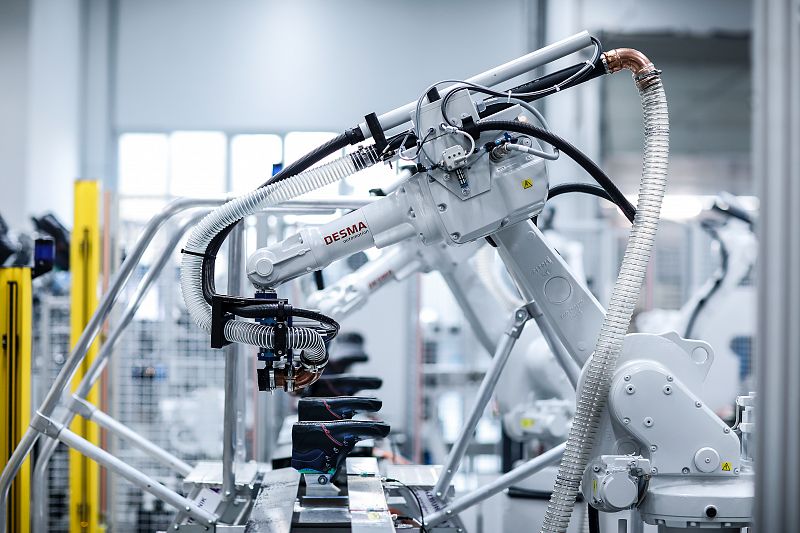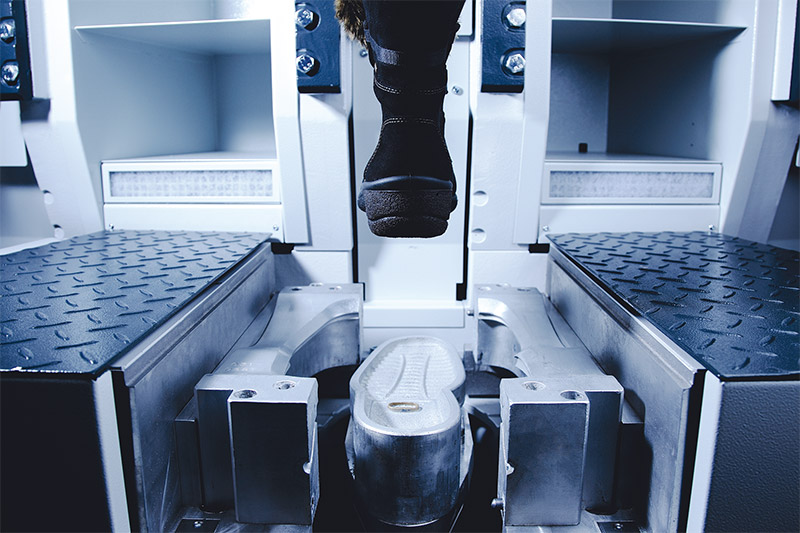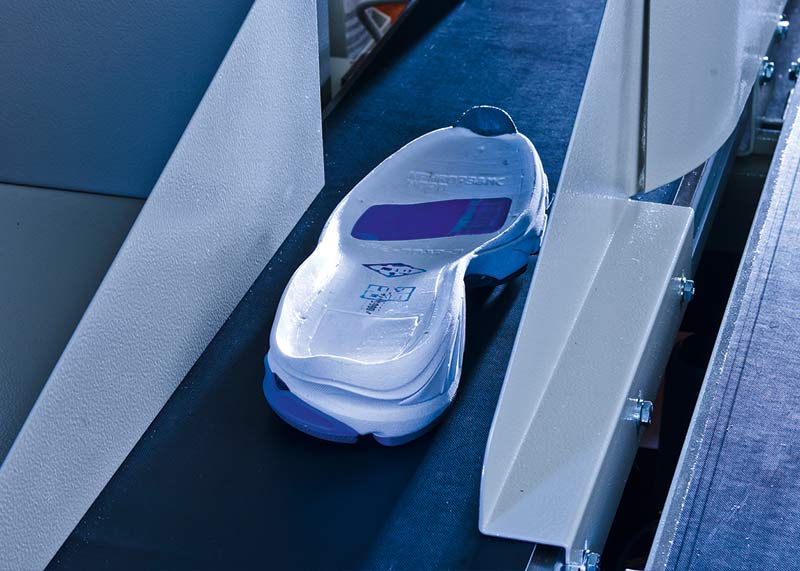Latest news
24. August 2020LET ROBOTS DO THE WORK FOR YOU

Automation can streamline work processes, raise productivity, improve quality and consequently increase overall economic output. Robots and appropriate automation solutions can also minimise existing and future risks.
The use of robots, process automation and digitisation are tried-and-tested instruments that enable a business enterprise to produce more efficiently, minimise labour costs and optimise earnings. The present situation resulting from the pandemic has raised the question of whether this will accelerate the integration of robots and automated systems into industrial processes and is the subject of intensive debate.
Footwear industry suffers from downturn in retail shopping
The first six months of 2020 saw the collapse of supply chains, decreasing production figures and closed retail stores. There was also a significant change in consumer purchasing behaviour, as people no longer went shopping simply for pleasure. The global footwear industry was hit particularly hard: demand for new shoes slumped, leading to a drastic decrease in production.
The best production strategy, however, will also prove successful in times of crisis. Although automated systems meanwhile handle an increasing share of the production processes, they cannot entirely replace human labour. Every global crisis shows that manufacturers in every country and every business sector should carefully assess their risk management policies to ensure that they remain capable of acting effectively even in difficult circumstances.
Automation and digitisation, the use of robots and state-of-the-art software as well as modern and sophisticated information exchange systems can help business enterprises to manage risks, comply with social distancing regulations and still produce efficiently.
Initial feedback from the market has shown that many highly-automated production lines are meanwhile working almost normally again and that they are able to overcome crises more effectively. Another key factor in favour of automation is the shorter time required until production can start up again. The time required to restart highly automated lines is significantly shorter than for production units which involve a large number of manual steps. Automation can therefore substantially reduce the influence of pandemics.
Many sectors of industry and many companies are still busy trying to start up production again. However, the focus of future investments will undoubtedly have to be on ensuring that production lines, inclusive of the relevant transport and supply chains, are protected against potential crises right from the start. The set-up and integration of automated solutions naturally requires greater investment volumes than traditional solutions, but once automated production systems are up and running, they are generally more cost effective than production lines involving a high manual component.
Benefits of automation
Even more cost benefits are possible thanks to a greater awareness of potential risks. But quite apart from the reduction in costs, there are various other reasons in favour of automation and robots. The use of industrial robots, for instance, results in a consistently high and generally better quality of the finished product as well as higher production rates. Moreover, the use of robots reduces dependency on human labour. Robots can help human resources with many dangerous, stressful and strenuous tasks or take them over completely. Occupational safety improves, material consumption decreases and the share of rejects is lower. Lean, clean production in a state-of-the-art factory becomes reality.

Put your trust in DESMA’s expertise
An experienced and committed DESMA team, made up of engineers, project managers and development specialists, can help business enterprises to roll out automated solutions and thus improve all processes from design, production and maintenance right through to delivery.
DESMA would like to show the footwear industry how it can prepare for the post-Covid era and embark on a successful course as we head towards the “new normality”. No matter whether this “disaster emergency analysis” provides incentives for introducing new, automated production processes or for outsourcing production, DESMA is ready and willing to help – with years of experience, valuable expertise and great commitment.
DESMA engineers can help you translate new concepts and ideas into tangible assets. They assess and evaluate the profitability and feasibility of automated production steps and their effect on quality, check the reproducibility of the systems and identify possible limits and/or prerequisites for the introduction of automation tools. They can also help with the technical and commercial evaluation of ideas and automation plans in order to implement the first stage of automation.
No matter what approach you take, which model and which engineering method you intend to use, the DESMA team is right there beside you all the way.
back


